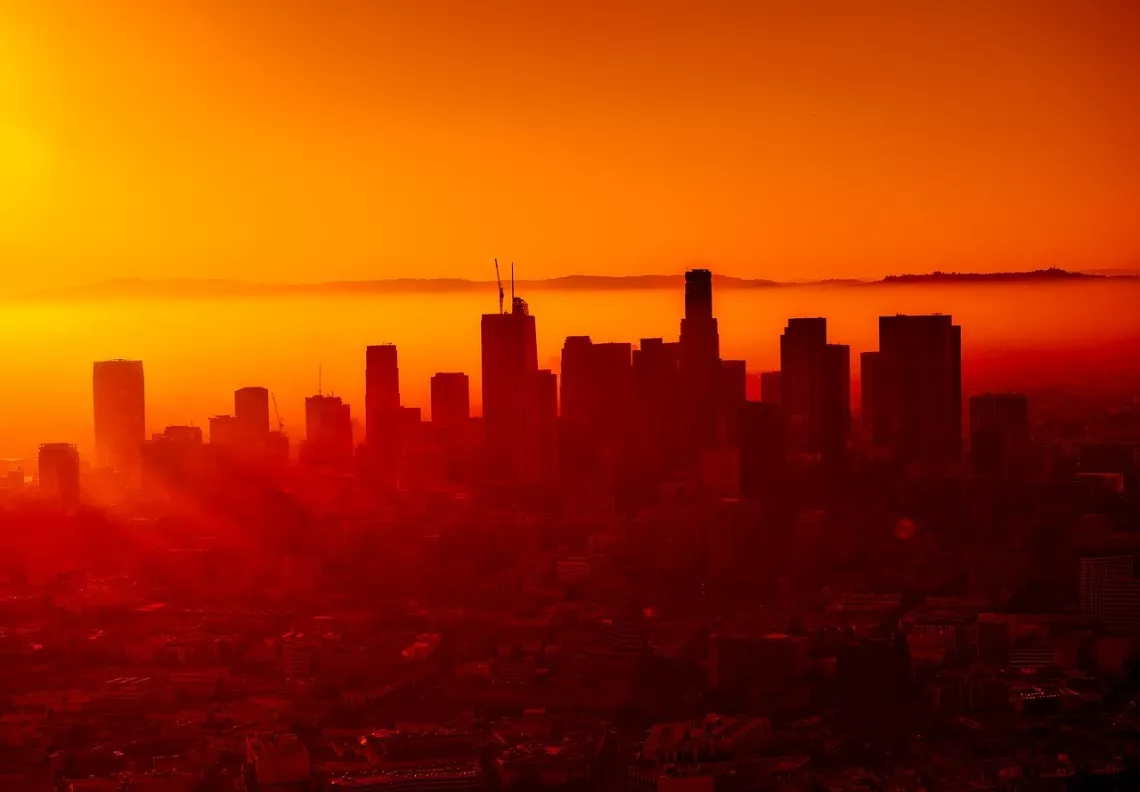
April 30 2023
As Californians head into the summer months and families and communities start to spend more time outdoors, the state of our air quality deserves more and more attention.
The American Lung Association recently released their 2023 State of the Air Report. The report identified over 5,000,000 California residents at risk of cancer, asthma, or cardiovascular disease due to air pollution, with the majority of those being non-white individuals. The report found that California counties occupy 17 of the top 25 most polluted places in the country for Ozone pollution, and 20 counties in the top 25 most polluted places for short-term particle pollution.
In other words, California’s air quality is not good. Cleaning up California’s air quality will require action at all levels of government. Fortunately, at the state level, one agency has recently taken steps to do just that.
Last Thursday and Friday, the California Air Resources Board (CARB) adopted two first-of-their-kind rules to lower airborne pollutants. First, CARB adopted the Locomotives Rule, which mandates the retirement and replacement of diesel power trains older than 23 years in California. Passing this rule alone will cut NOx emissions by 63 tons per day across California and prevent more than 3,200 premature deaths.
Second, CARB also adopted the Advanced Clean Fleets rule, which will jumpstart the transition from dirty diesel in truck fleets to electric, zero emissions vehicles. This rule requires 100% on-road pollution-free drayage trucks by 2035, and truck replacement purchase requirements for public and large fleets while requiring manufacturers to sell 100% pollution-free trucks by 2036.
These two historic votes wouldn’t have happened without the bold advocacy of community members for decades, and will ultimately put an end to diesel death in environmental justice communities within a generation.
Meanwhile, the state legislature continues to fall short on this issue. This is especially the case for warehouse pollution

The onset of the COVID-19 pandemic and the boom of e-commerce that followed necessitated a massive buildout of delivery infrastructure across America. In areas such as Inland Empire, warehouses now cover more than 1.5 billion square feet of land, with more construction already planned. This rapid expansion of warehouses has predominantly occurred near and around Black and Brown neighborhoods, especially low income communities. Proximity to warehouses is directly correlated with numerous environmental and health issues. These communities are already burdened with poor air quality, high rates of asthma, and other health disparities.
The top 10 communities in the South Coast Basin with the most warehouses also fall in the highest percentiles of toxic facilities. And as mentioned, these communities have some of the worst ozone pollution in any city in America.
Over the last 3 years, one legislator in particular has stepped up to address this increasingly harmful issue, as it is her district that is feeling the brunt of this expansion. Assembly Majority Leader Eloise Gomez Reyes has introduced three bills over the last years to tackle the problem of warehouse pollution.
This year, she introduced Assembly Bill 1000, a critical common sense bill that would have established a 1000 foot setback distance between warehouse or logistics projects and any from sensitive receptors. The bill would have allowed these projects to be sited within 750 feet if the project met a set of standards related to air quality monitoring and electrification requirements for trucks and equipment, and prohibitions on idling for vehicles. AB 1000 would have had a major impact in reducing pollution in communities near warehouses. But unfortunately, political pressure from big business and polluters won the battle and the bill failed to pass the Local Government committee earlier this week with numerous community members and environmental organizations in support.
Instead, Big Business and polluters rallied behind Assembly Bill 1748, a competing bill that requires local governments to set a less strict 300 foot setback limit for warehouses, and imposes none of the electrification or zero-emissions requirements in AB 1000. Ultimately, AB 1748 passed out of committee. AB 1748 must be stronger if it is to actually protect public health and communities.
It is clear the legislature needs to step it up to improve California’s air quality. It’s not necessarily surprising that some politicians kowtowed to the pressure of big business, but it is disappointing that many of them were unwilling to stand up for the health and safety of their local communities, especially in light of the recent ALA report and actions at the Air Resources Board.
Despite our reputation as a climate leader, 98% of Californians experience unhealthy levels of air pollution in their communities. Sierra Club California and our allies will be boldly advocating that bills seeking to protect our air quality and public health do just that in their strongest forms. We won’t let the influence of polluters stop us from our bold advocacy, and neither should our politicians.
Sincerely,
![]()
Brandon Dawson
Director
Sierra Club California is the Sacramento-based legislative and regulatory advocacy arm of the 13 California chapters of the Sierra Club.
Please consider making a monthly donation.